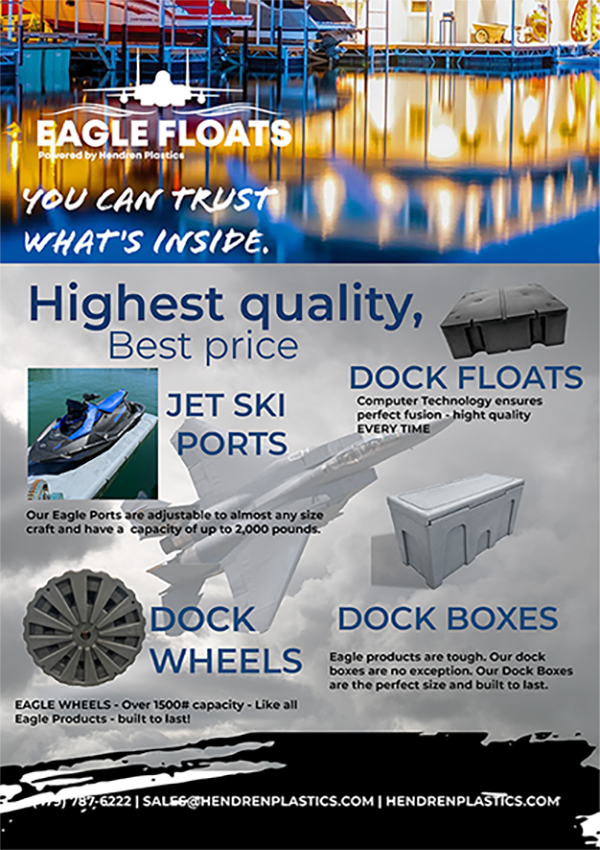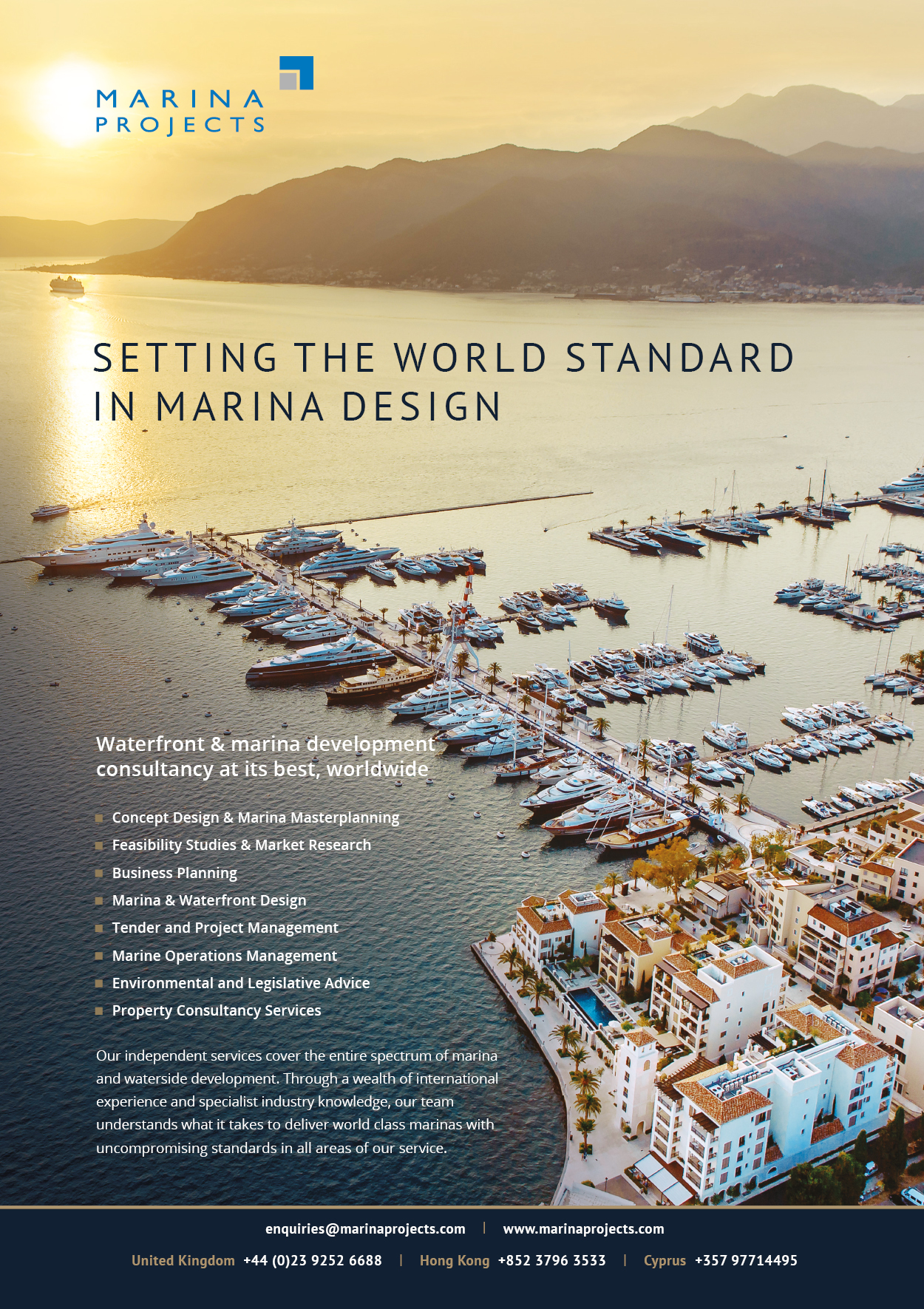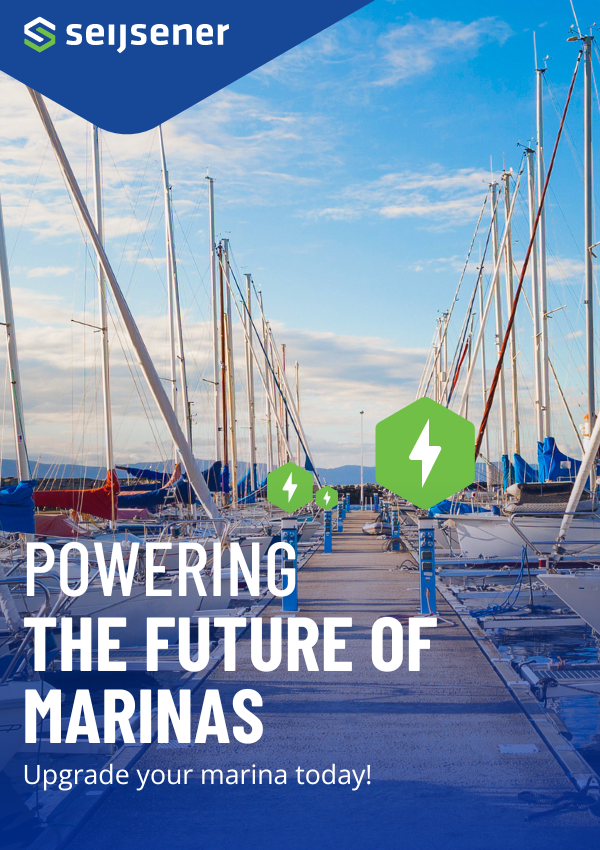Tomorrow’s solutions for today’s problems
In the final quarter of 2024, the diverse activities and brands that fell within the Poralu Marine umbrella were consolidated under the new name Wearth Group (see World News and Mooring Post December/January). Wearth Group growth director, Christophe Sauné, discusses initiatives that make for sustainable marinas.
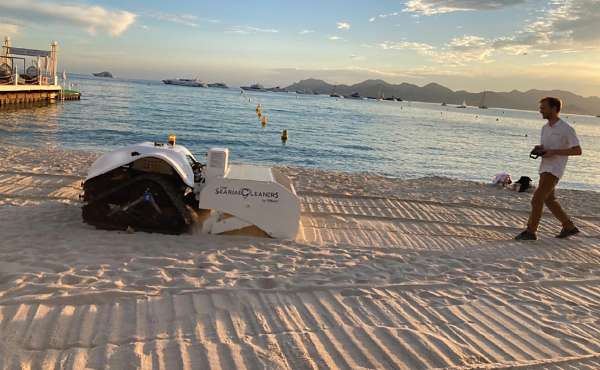
The Bebot beach screening robot is perfect for beach operators who consider there is strong economic value in providing customers with spotless sand.
Wearth Group, through its different brands and expertise, has been focused right from the beginning on supplying the most innovative solutions to limit the impact of marina installations on the environment. Our R&D investment policy firmly sticks to this development philosophy. From design to construction and management, we strive for programmes aimed at preserving what makes our industry special; the interaction with clean waters and clean environments.
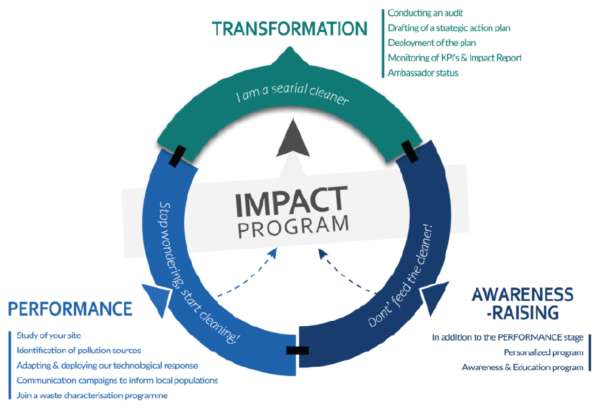
Fig 1. The Impact Program is a collaborative three-level system based on cooperation between local partners.
Collecting waste isn’t the end goal – in fact, it’s the starting point of a process of transforming practices and mindsets. Our range of litter collection products, The Searial Cleaners, can be combined to offer a fully customised solution adapted to specific site constraints while raising awareness regarding marine pollution. The Impact Program (see Fig 1) is a collaborative three-level system based on a concrete cooperation between a community of local partners: NGOs, charities, universities, public and private stakeholders, and sponsors.
For example, to deal with the increase in floating waste of all kinds in the Ourcq Canal (mainly aquatic weeds, but also packaging, bottles and cans), the City of Paris decided to invest in the Impact Program and the Invisibubble, a bubble curtain solution developed in collaboration with Wearth Group’s partner Canadian Pound. This system stops plastic waste and directs it to a previously determined collection point. Specifically designed pipes are strategically positioned on the seabed and release compressed air, forming layers of bubble curtains. Once stopped and redirected, the waste is collected at a single location several times per week. Despite this bubble curtain, fish movements are not disrupted, and no visual or noise pollution is generated by the system.
The objectives of the installation were clearly announced, and were measured during an observation period before being potentially deployed on a larger scale. The aims were to:
• Facilitate the canal cleaning by limiting the dispersion of floating waste
• Prevent hydrocarbon pollution from moving downstream
• Contribute to improving water oxygenation
• Preserve the canal biodiversity and reduce the proliferation of invasive algae
• Fight against the presence of plastic waste in the river and, ultimately, in seas and oceans
• Raise awareness about the installation by supporting the Paris City Hall team in designing and deploying their communication initiative
For achieving its promises, the project was recently awarded a Bronze Territoria Award and the City of Paris is currently investigating several additional sites where the system could be implemented.
Clean beaches
We notice that cleanliness for beach operators has important commercial value. But clean water and green practices aren’t, however, fully integrated as yet in traditional marina business models.
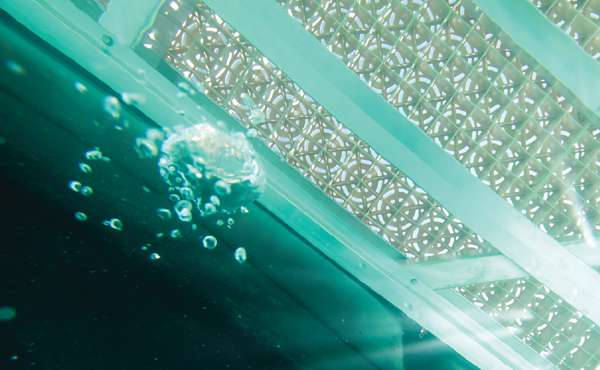
Poralu Marine’s Ecostyle decking allows light to filter through and thus preserve underwater flora and fauna.
On the other hand, and mostly by commercialising the Bebot – a beach screening robot – we noticed that beach operators find strong economic value in providing their customers with spotless sand. Cleaning practices are, therefore, an intrinsic part of their business model and OpEx plan.
As an innovative industrial company, our role is to fill this ‘green gap’ by providing not only technical solutions but by also developing commercial offers that help our customers value their environmental approach.
Building green
Our vision isn’t strictly restricted to water cleanliness. It initially started with construction methodologies, strongly focusing on decreasing the impact of marina construction on local ecosystems. Building ‘green’ is a big step ahead with tremendous upsides.
Among other programmes, reducing carbon footprint in marina construction should remain one of our common primary objectives. The challenge is not only to conceptualise and design the right solutions, but also to federate the entire industry value chain around the concept of sustainable construction, from raw material suppliers to investors and marina end users.
Marinas in general, especially floating constructions, are manufactured for a limited period of time. Knowing that what is built today has an expiration date and not considering the end of life of the building materials seems like leaving our next generations with an issue we should have anticipated. In that sense, making tomorrow’s circular economy possible is a choice we commonly make today understanding the impact of construction and removal:
- How easy is it going to be to remove what has been installed?
- What are the recyclability options offered for the materials used?
- What construction options are available to drastically decrease the development carbon footprint and its impact on local ecosystems?
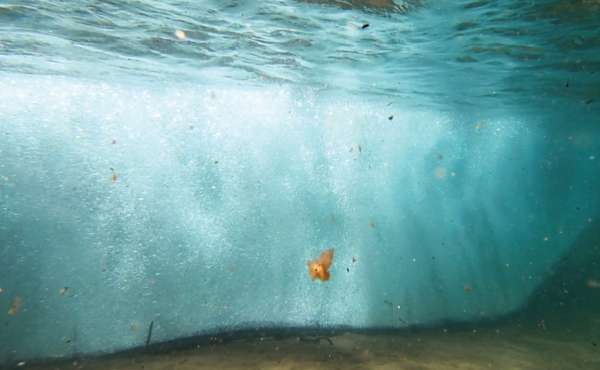
The Invisibubble curtain stops plastic waste and directs it to a collection point.
Indeed, discount rate (or expected return for investors) increases with the risk associated to the asset, naturally dragging down its future value. Thus, non-compliance with future sustainability expectations, which could be either legally imposed or considered socially non-acceptable, is foreseen by investors as a risk combining high financial impact and high probability, and thus reducing the value of the marina in the future.
Put differently, and mostly because shorelines, banks and rivers are centres of attention when it comes to sustainable practices, building green is a must if we want our industry to remain attractive for future investors.
Marina infrastructure, operators, sailing, and boating in general stand on a stage where natural elements are the main pillars; the business in itself exists only because water and shoreline are perceived as pristine elements. They are thus under constant scrutiny. Preserving them by making the right choices is the only way to ensure long term business and pleasure for all, and tomorrow’s solutions can already be found today.

